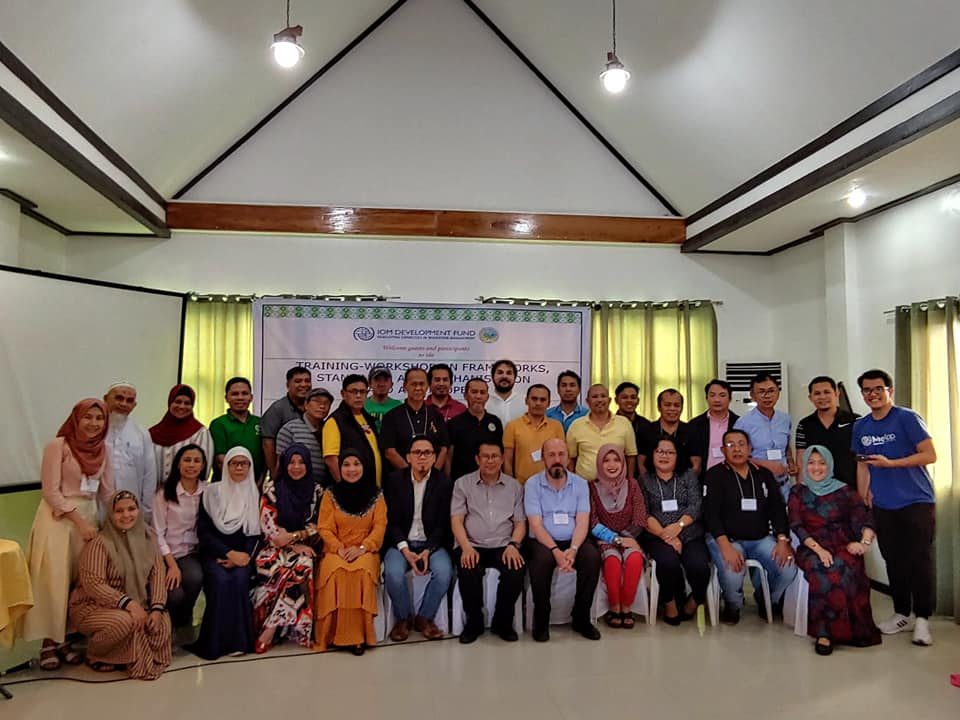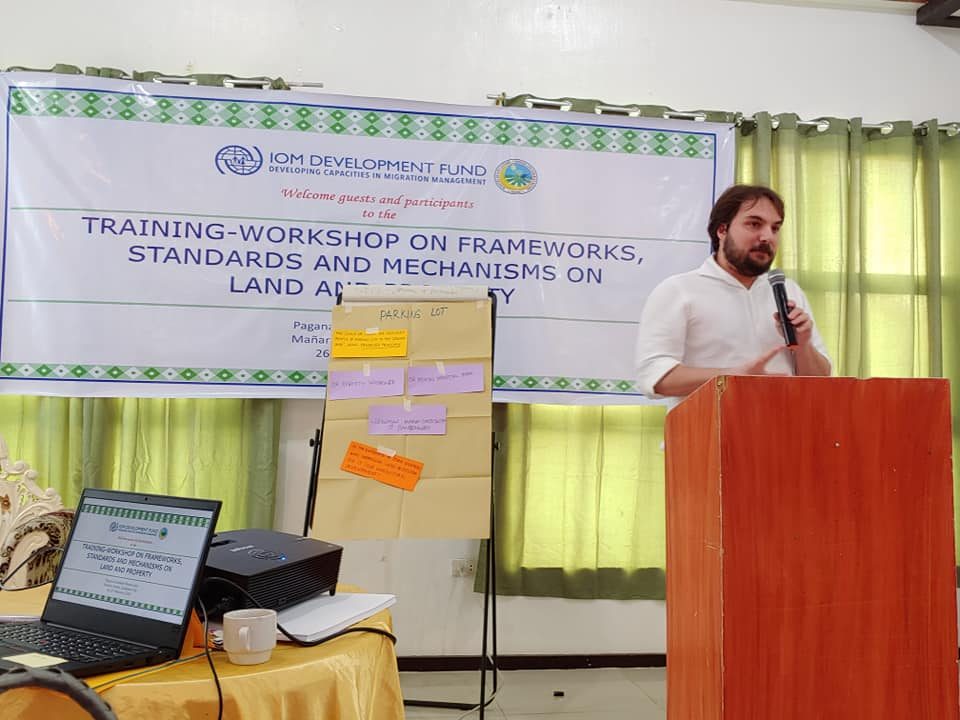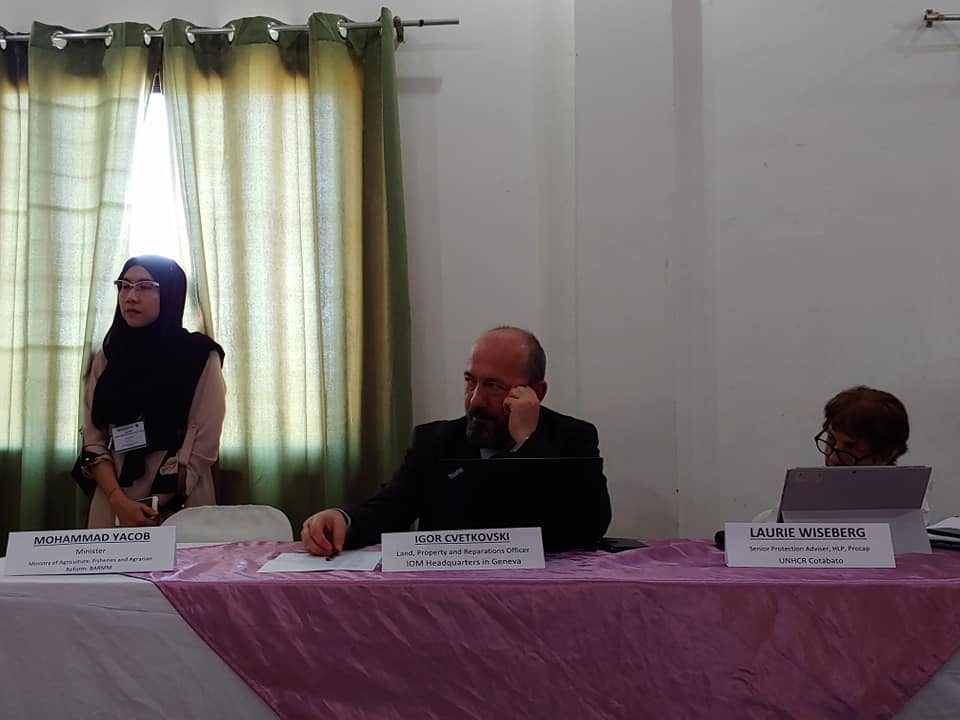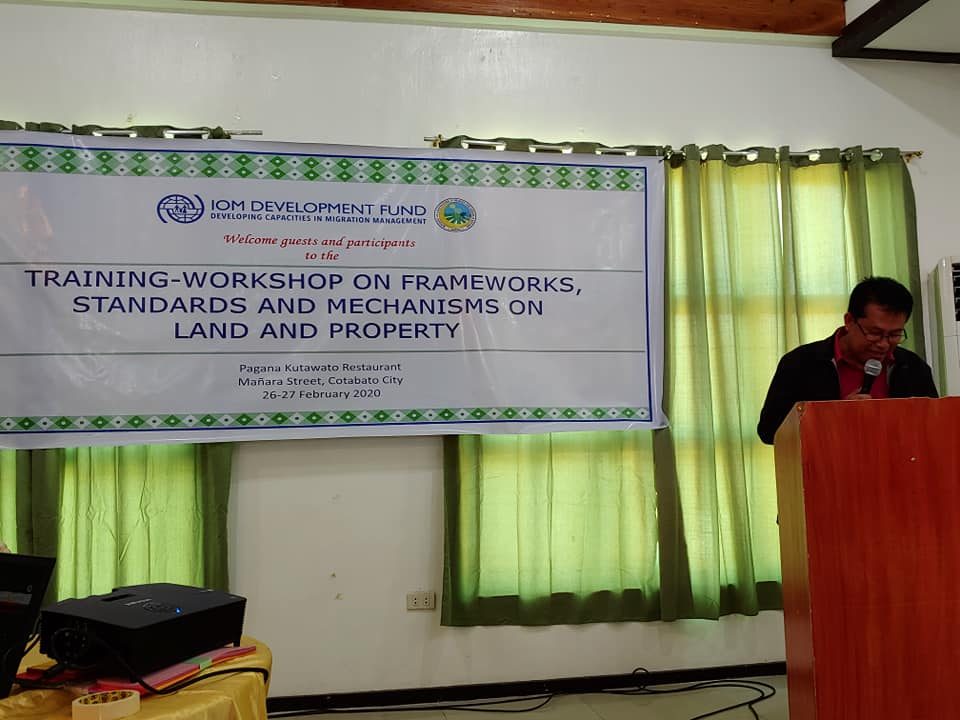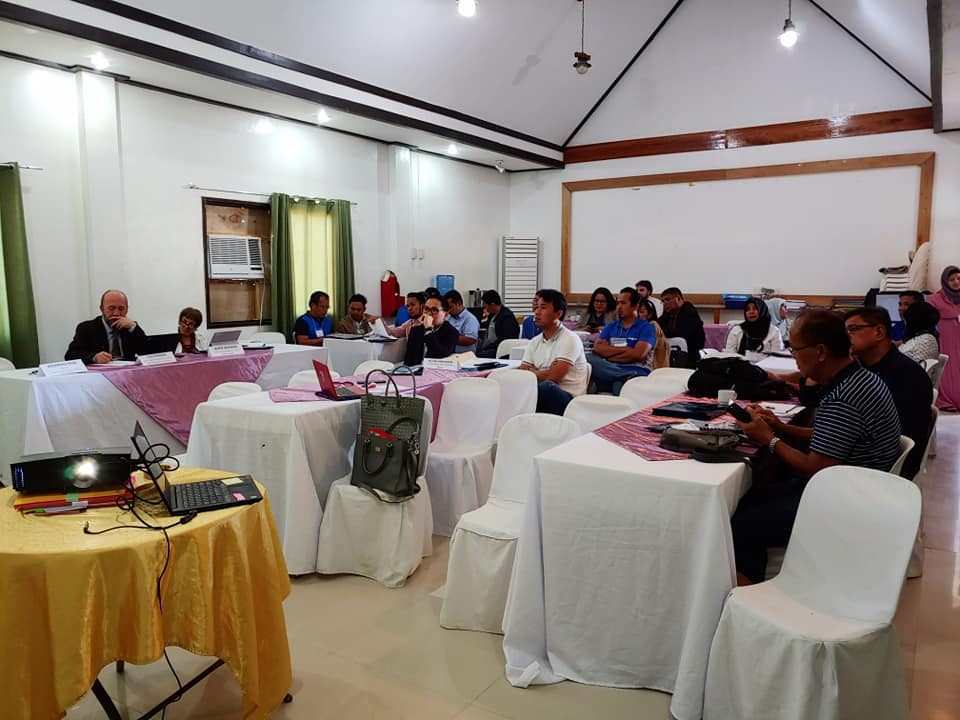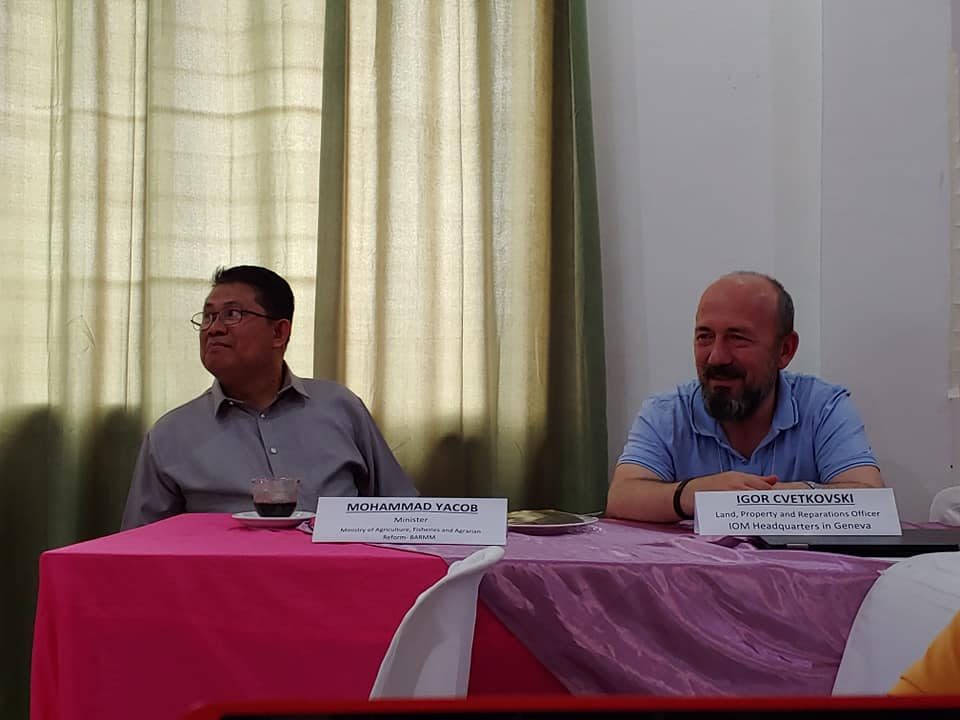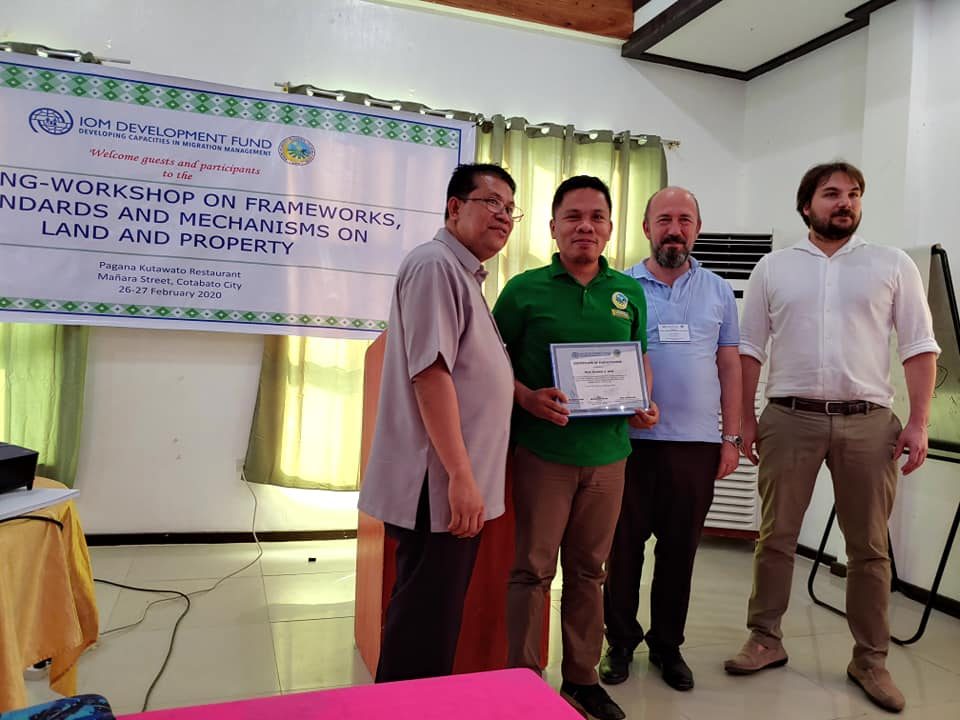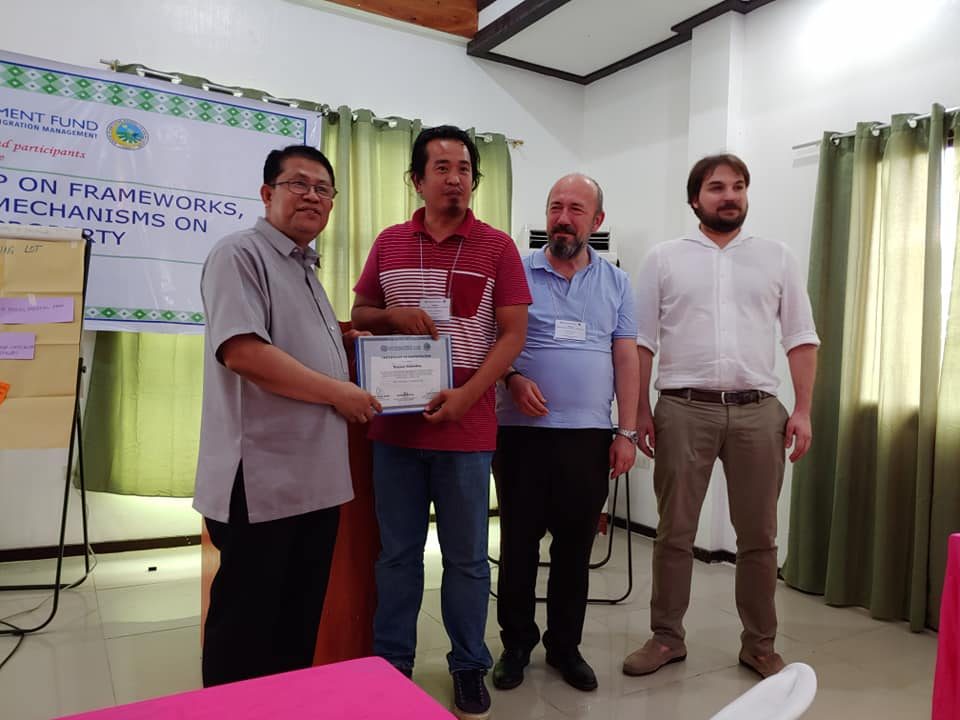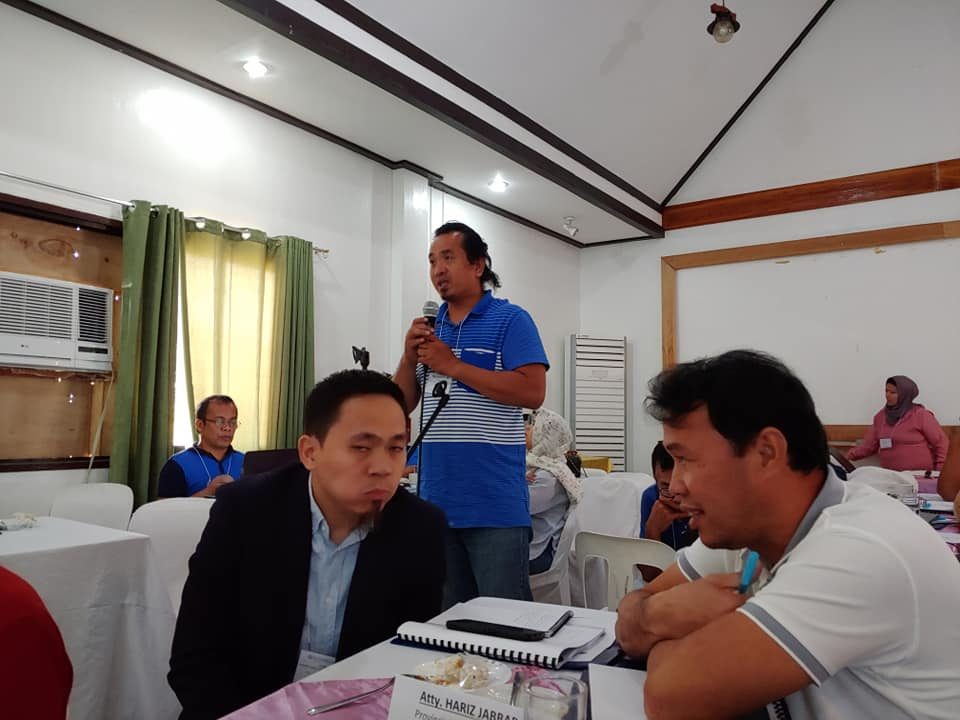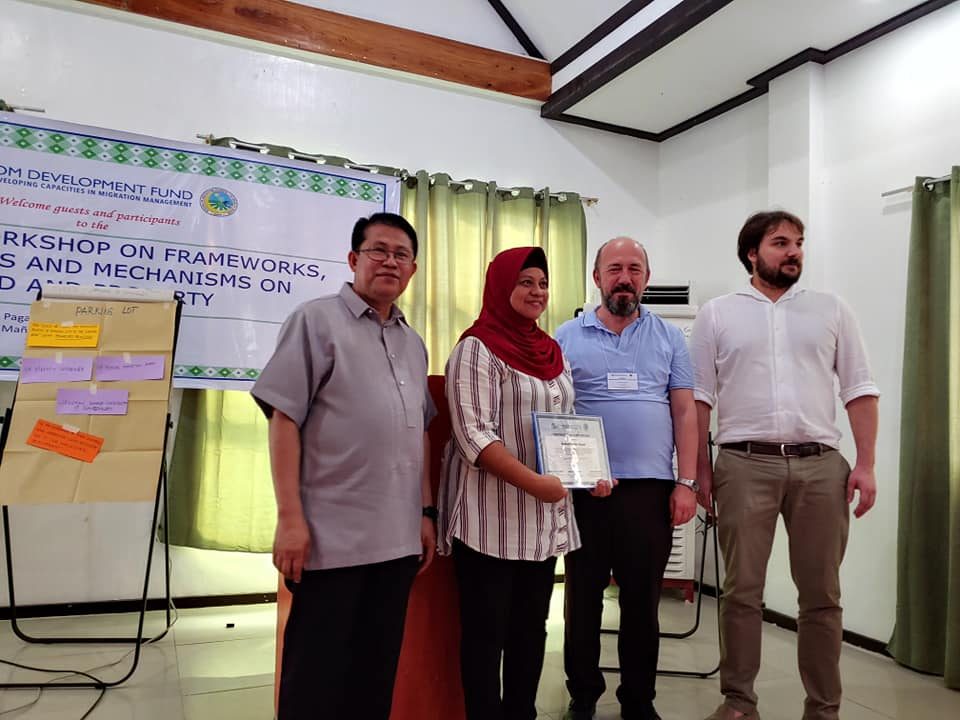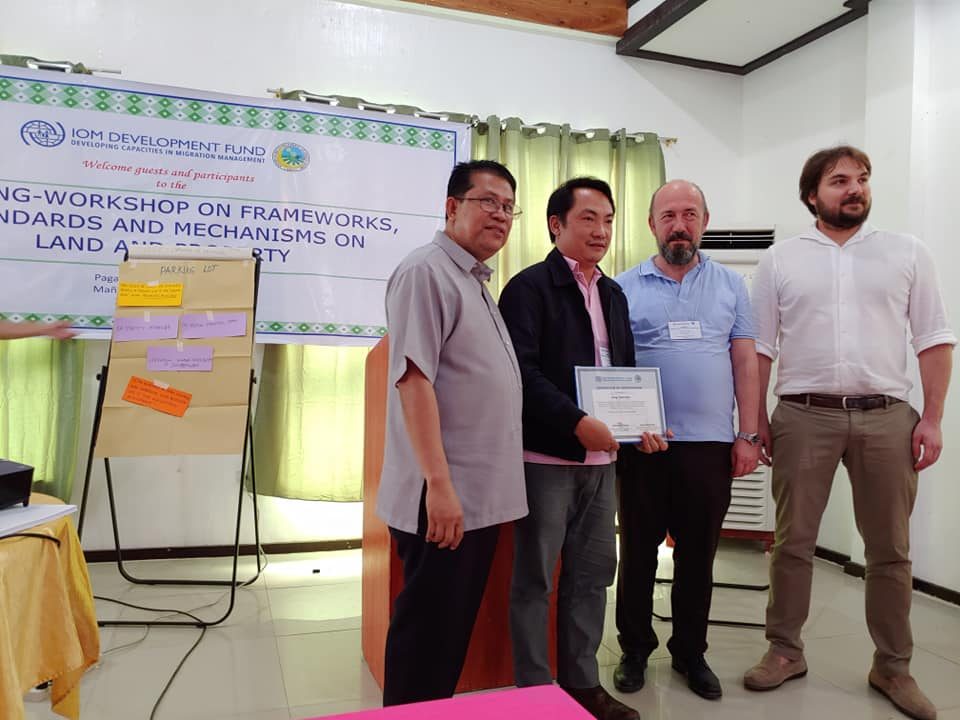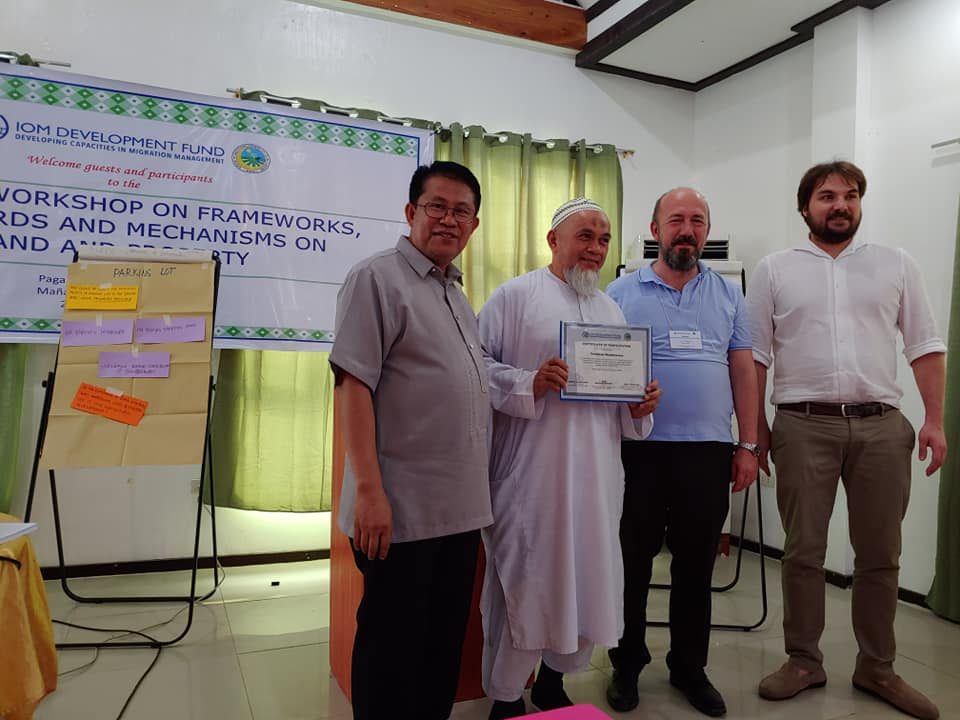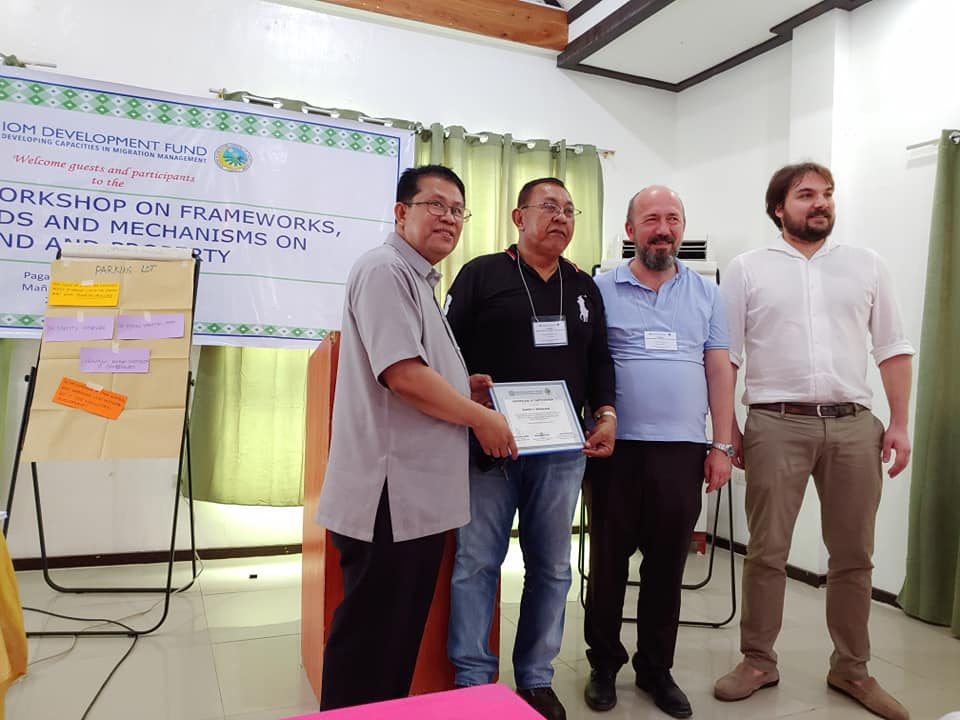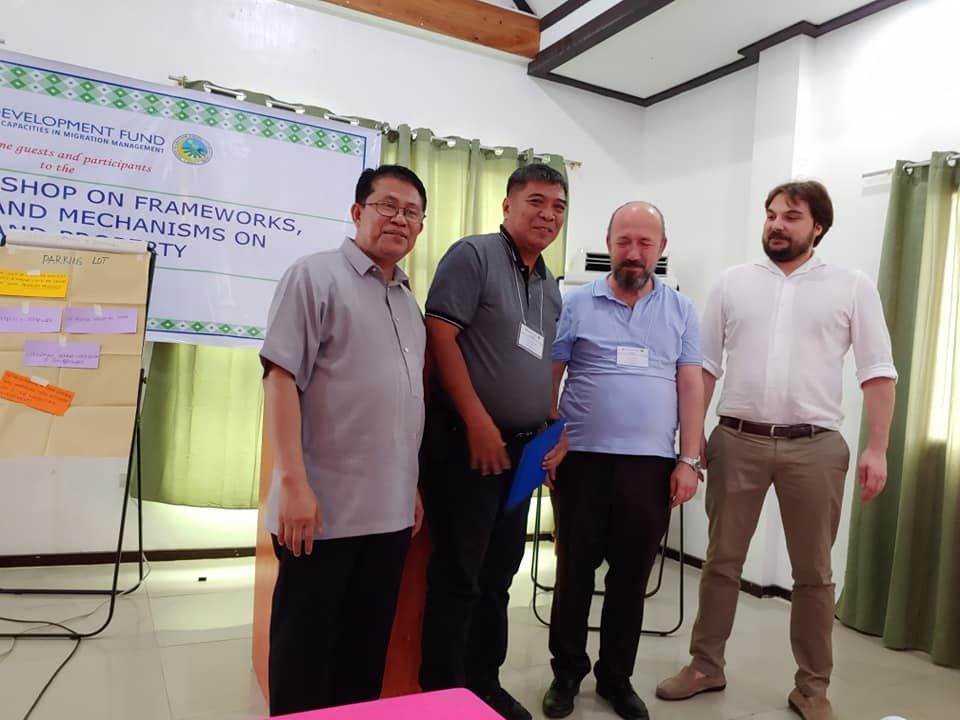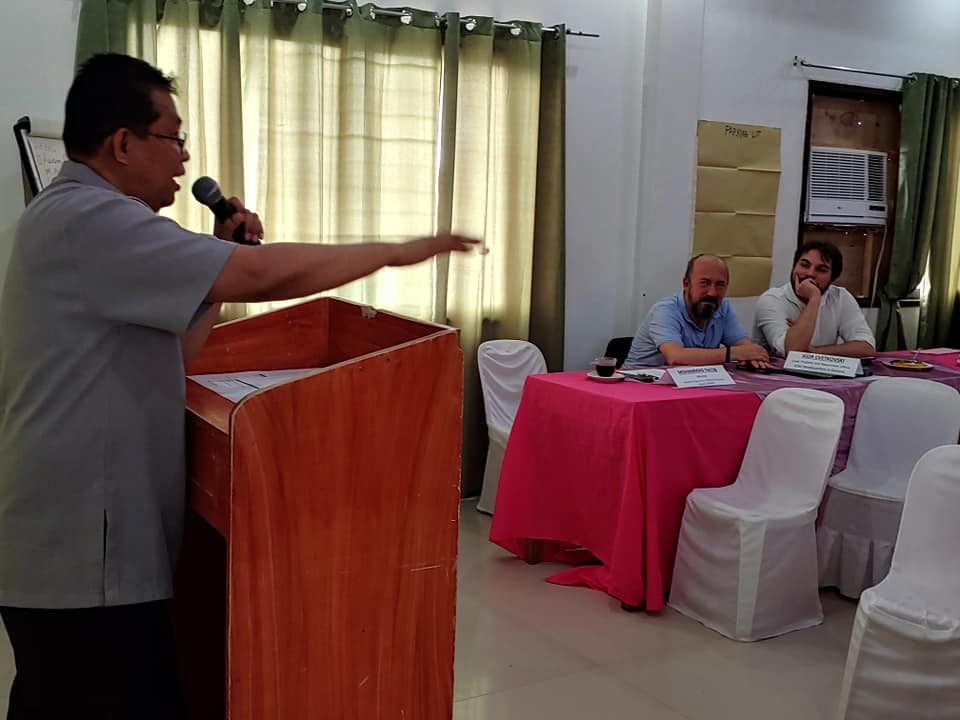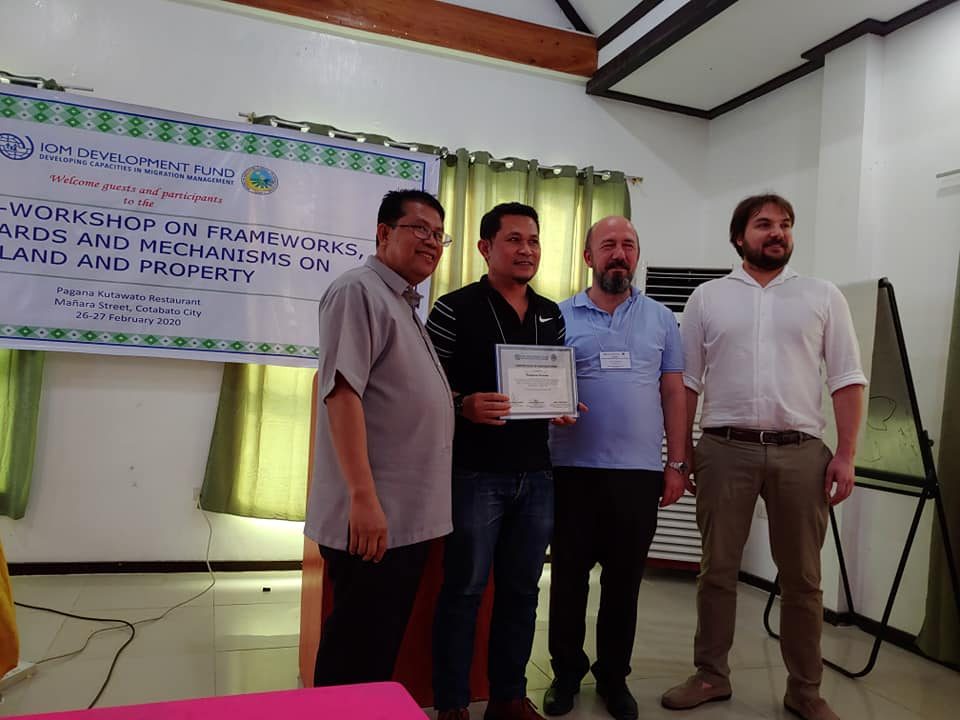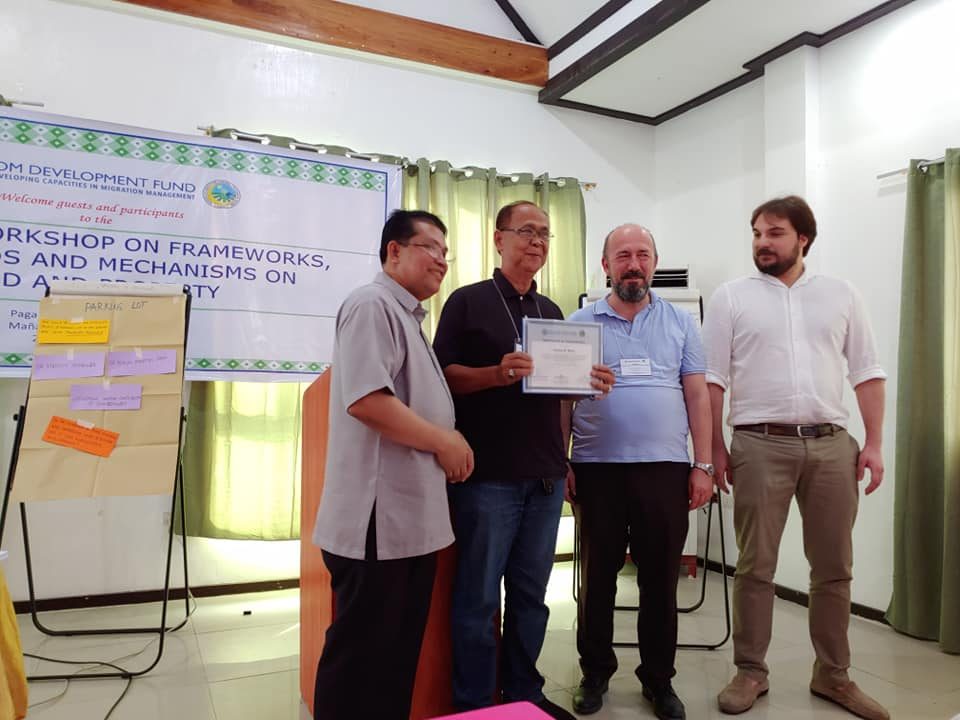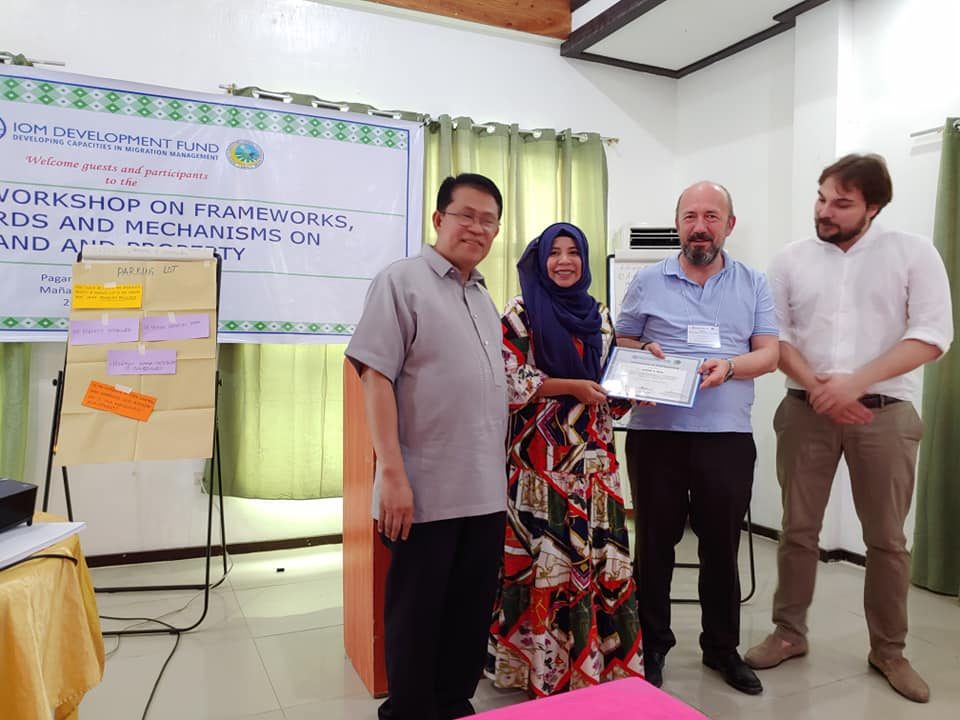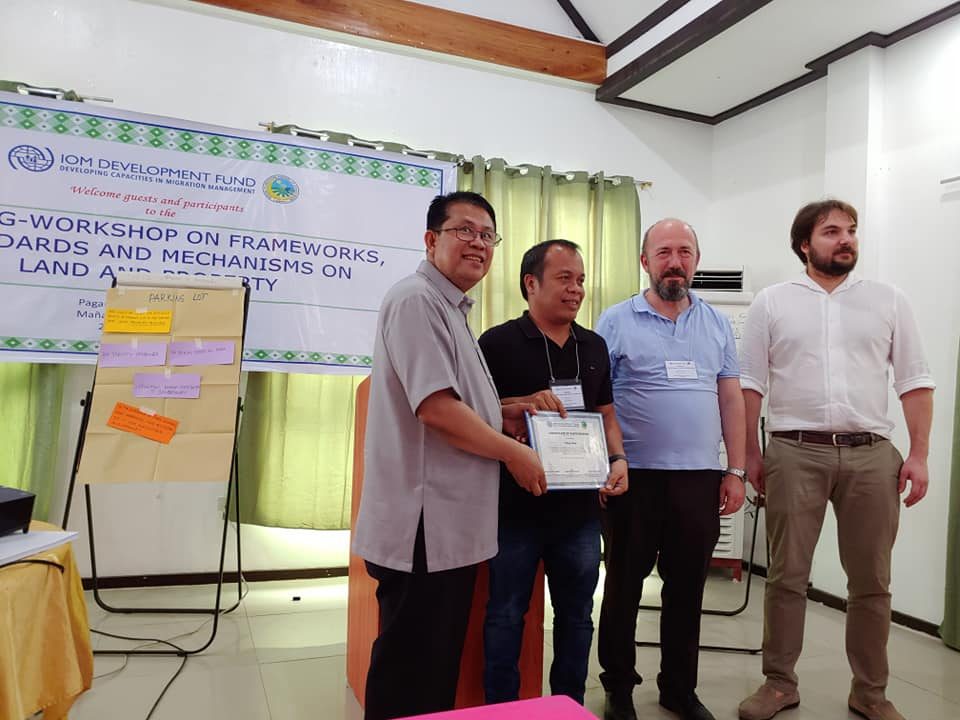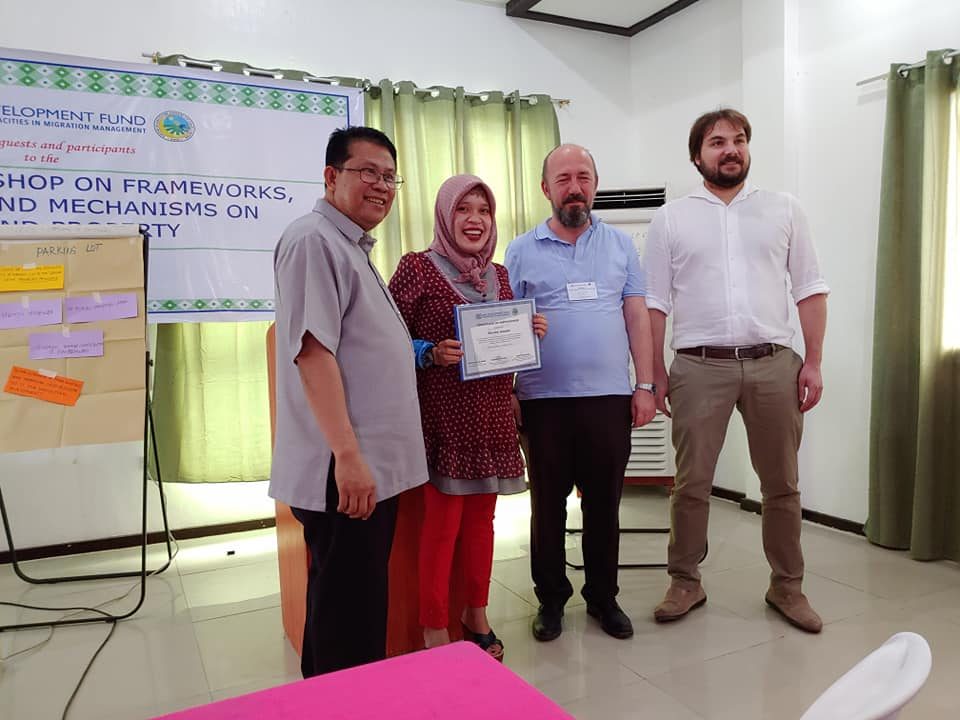MAFAR KEY OFFICERS LEARN INTERNATIONAL STANDARDS IN RESOLVING LAND ISSUES
Key officials of the MAFAR acquired significant knowledge on the international standards, tools and mechanisms in addressing land and property challenges from Igor Cvetkovski, Land, Property and Reparations Officer from the International Organization for Migration (IOM) Headquarter in Geneva.
The group was also able to determine which of these standards are similar and suitable in resolving land property issues in the Bangsamoro Region with the conduct of the Training-Workshop on Frameworks, Standards, and Mechanisms on Land and Property held at the Pagana Native Restaurant, Cotabato City on February 26-27, 2020.
After series of careful planning and strategizing, the two-day training-workshop was finally funded and conducted by IOM in partnership with the MAFAR and was also able to facilitate the discussion and analysis of the concrete challenges and current mechanisms within the Philippines with emphasis on the cases in the BARMM.
Minister Dr Mohammad S. Yacob reiterated in his opening message that a landless farmer is not really a farmer. Knowing that most of the Bangsamoro farmers are merely tenants, the ministry according to the MAFAR chief, is striving to ensure the fair allocation of land to the actual cultivators. He then thanked the IOM officials for their assistance in capacitating the workforce of the ministry thereby making them more effective in aiding the communities in their quest for comfortable, secured, and decent life.
Meanwhile, Cvetkovski emphasized that the group must delve on the practicability and appropriateness of the land reparation or restitution principles and strategies that will be adopted in the BARMM to guarantee effective and beneficial implementation. He added that a certain system might be perfect but it might not be relevant to some locations and situations.
With the active participation of the provincial agrarian reform officers from across the Bangsamoro Region and the MAFAR-BARMM technical staff in the workshops, the group was able to enumerate and list down the primary actions in resolving the identified challenges in land and property (LP).
These included awareness raising in LP rights based on existing legislations, formation of legal counselling network, consolidation and harmonization of existing data, capacity enhancement, policy formulation or development, implementation, and accountability and monitoring. With the facilitation of IOM and the contributions of Laurie Wiseberg, Senior Protection Adviser of UNHCR, the group has categorized these actions into timeframe whether they are to be accomplished in short term, medium term, and long term period.
The assumptions, risks, and mitigation measures were also discussed and agreed upon among the participants taking into considerations the political will, availability of resources, technical know-how and experiences, moral governance, acceptance by the local communities, feedback mechanism and evidence, enforcement, and security.
Twenty-six stakeholders or involved agencies were also listed for the enforcement with MAFAR and MENRE taking the lead thru the overall support and guidance of the OCM and BTA and with the monitoring of RHRC and other development partners.
The training ended with the remarks from Marco Chimenton, Head of IOM-Cotabato Sub-Office, where he said that land issues often cause displacements and forced migration which are reason enough to capacitate and inspire people to do the right thing and pursue accurate decisions towards addressing the pressing land reform challenges in the Bangsamoro.

